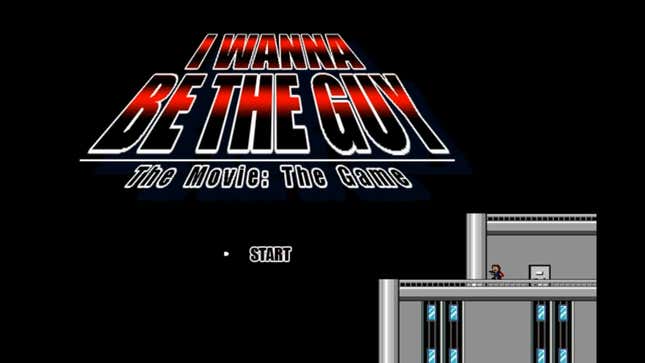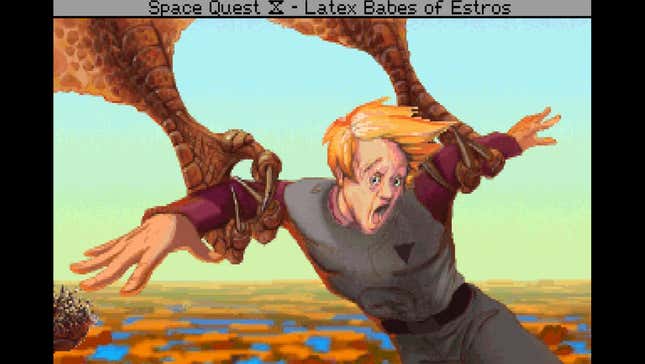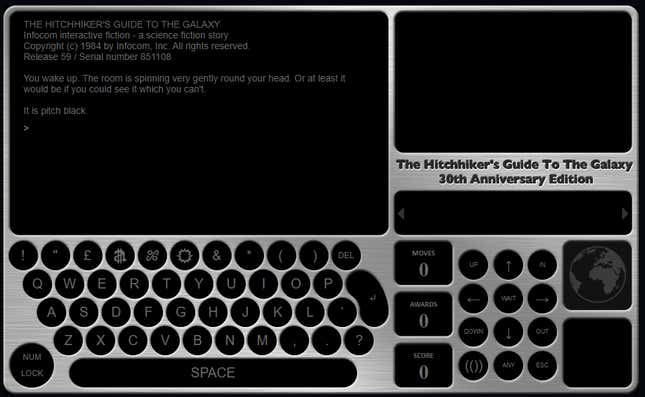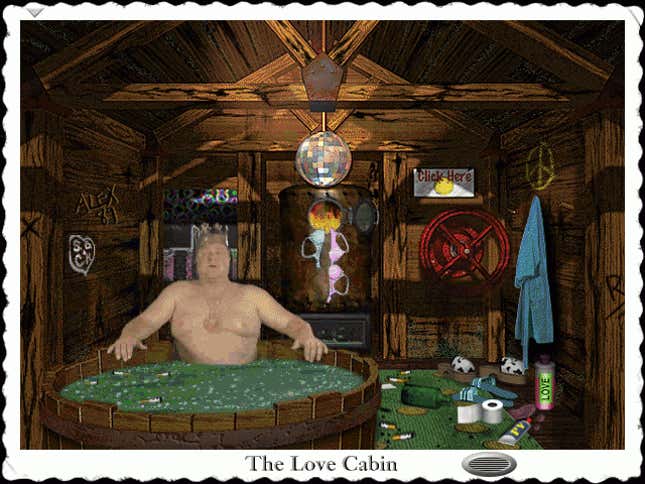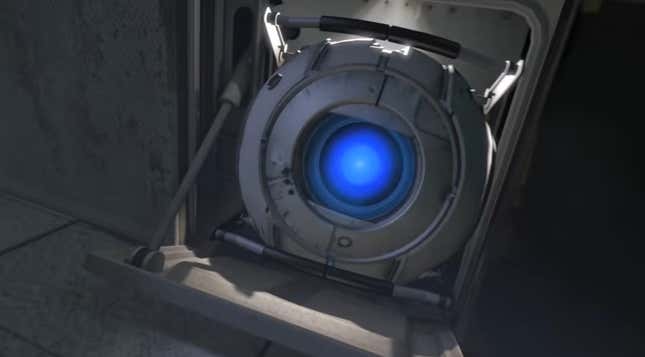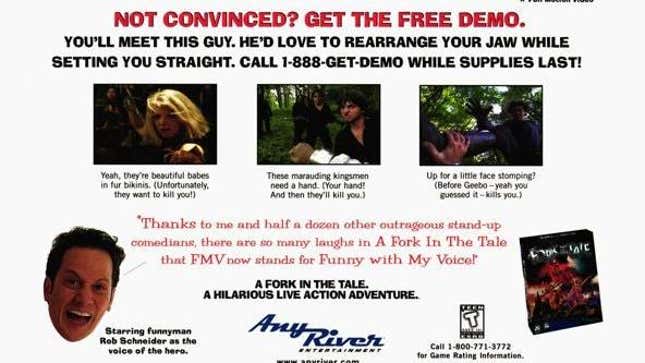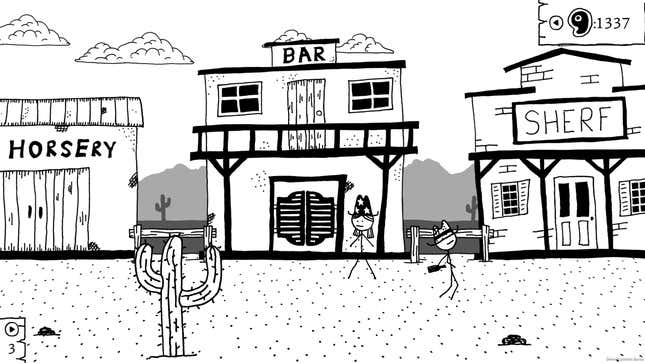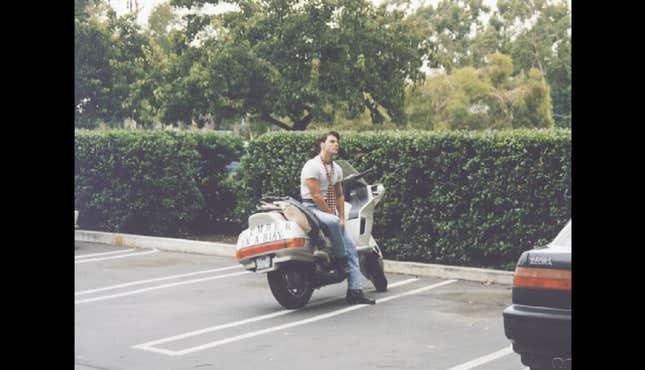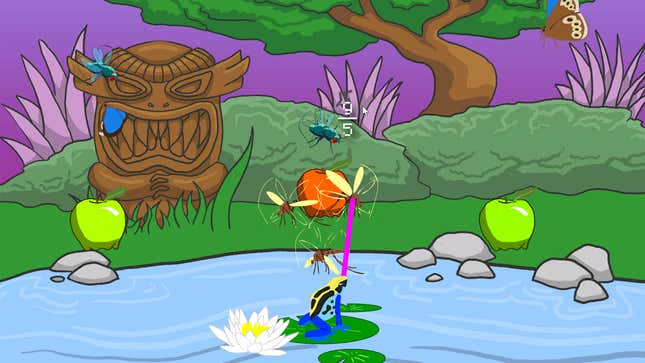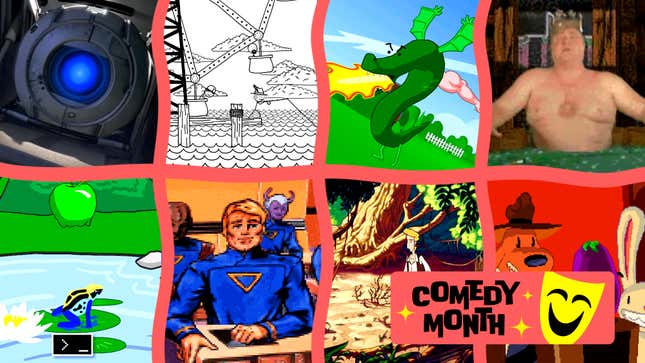
It’s been a long, hard road for the art of being funny in video games. Comedy is a tricky beast in the best of cases, after all, and even moreso in a medium like games—which, more often than not, puts vital elements like pacing, focus, and perspective directly into the hands of the players, rather than designers or directors. (Imagine the nightmare of Mel Brooks trying to make a comedy where the audience is allowed to point the camera anywhere they want, or smash a button to skip through all the gags.)
And yet, games have been trying to be funny (with mixed results, sure, but trying) pretty much since there have been games, from the early days of Colossal Cave Adventure up through the modern day. Some of those games have succeeded spectacularly, creating incredible works of humor that incorporate the player’s own agency into their comedic designs, producing jokes and goofs that are not just brilliant, but interactive, inviting you to be an author of the comedy. Some have dropped John Goodman into a hot tub and asked him to sing, or decided that Rob Schneider might be the perfect narrator for a fantasy adventure. It takes all kinds!
We’re here, then, to catalogue the highs and the lows, compiling the list of the 10 best comedy games of all time—along with five of the worst. (And, FYI: In the interest of not packing the list with a handful of gut-busting franchises, we’ve restricted ourselves to a single entry per series.)
